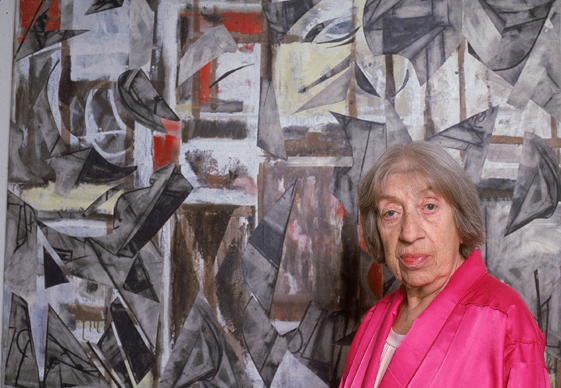

Talented actress and businesswoman Lucille Ball launches her long-running, award-winning comedy television series I Love Lucy.

Abstract Expressionist painter Lee Krasner debuts her artwork. She later moves into a large geometric abstract style.

Outspoken, versatile actress Shelley Winters receives her first Oscar nomination, for her work in A Place in the Sun; she will go on to receive three more nominations and win two Academy Awards during her long film career, spanning six decades. She never forgets her Jewish heritage, donating her Oscar (1959) for her role in The Diary of Anne Frank to the Anne Frank Museum in Amsterdam.

Creative salesperson and entrepreneur Brownie Wise is named vice president of Tupperware; she encourages thousands of homemakers to become businesswomen through the concept of home sales parties.

German-born philosopher Hannah Arendt is a controversial author who argues complex social theory. Her first major work, The Origins of Totalitarianism (written after she became a naturalized U.S. citizen), is a response to the devastating effects of Stalinism and Nazism. She is the first woman to hold the rank of full professor at Princeton University.

Maggie Higgins is the first woman to win the Pulitzer Prize for international reporting. She is the only woman reporter during the Korean conflict, where she reports from the battlefront for twenty-three months.

Amateur artist Bette Nesmith Graham (front far right) works in her kitchen to make and market Mistake Out, a white liquid that covers up errors in typed documents. This product is eventually renamed Liquid Paper; she later sells the product to Gillette for $47 million.

Lillian Vernon is one of the pioneers of direct mail marketing. The Lillian Vernon Corporation becomes so profitable that she is the first woman to have a company listed on the American Stock Exchange.